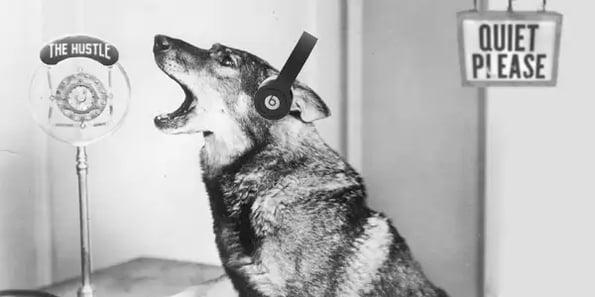Apple just bought a little-known podcast search startup, Pop Up Archive, in an attempt to make new podcasts easier to discover — and to reclaim its ironclad grip on the market it helped create.

In the past 2 years, Apple’s share of the podcast market has dropped from 70% to 55%, as podcasts find new life away from the very company that spawned its namesake (the iPod).
A brief history of podcasting
Before the rise of podcasting, NPR, PRI, and APM were the 3 main distribution networks for shows produced by local public radio stations.
Then came the internet, and in 2000, the first system that allowed people to download audio files (MP3s) to a device. The rise of the iPod brought “episodic audio-blogging” to the masses, leading Guardian journalist Ben Hammersley to coin the term “podcasting” in 2004.
By 2005, Apple added a podcast directory to iTunes and became the first mainstream aggregator for users to subscribe to, download and organize podcasts.
Since then, the competition has gotten super Serial
The podcast distribution space has gotten increasingly crowded in the past couple of years, from smaller curators like Stitcher and Radiotopia, to huge players like Google (via Google Play Music) and Spotify. Collectively, they’re closing in on Apple’s (still substantial) lead.
These companies are focused on the discovery side of podcasting — different from independent podcast companies like Gimlet that are focused on producing original content.
But podcast search and shareability is still pretty abysmal
Think about it: when was the last time a friend shared an episode of his or her favorite podcast on Facebook?
Despite their avid fan bases, even the most popular podcasts are still spread mainly through word of mouth, and Apple’s podcast recommendations are limited to similar shows.
In other words, there’s still no great interface for fans to discover and share them — but there’s money to be made for whoever figures it out.

